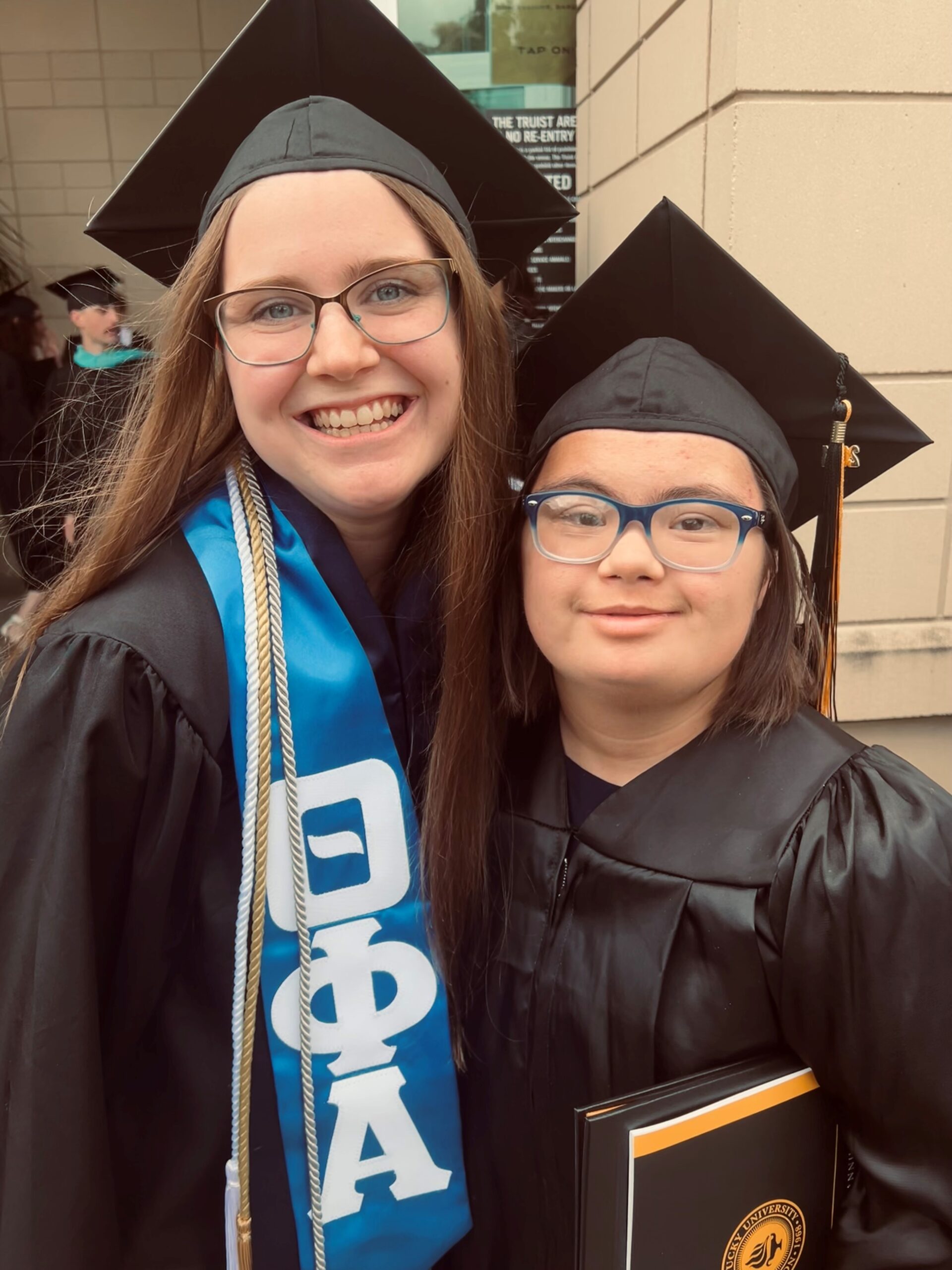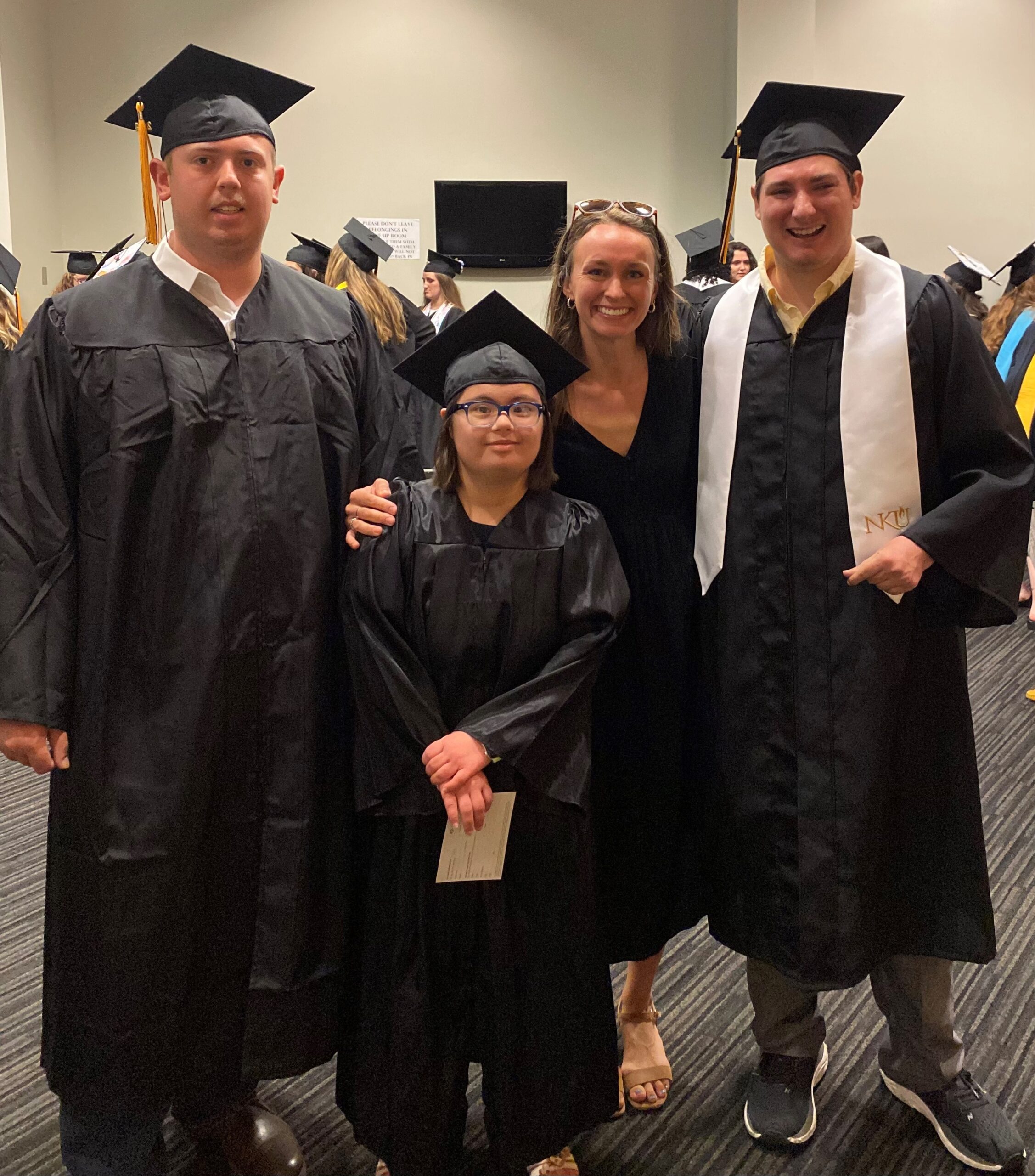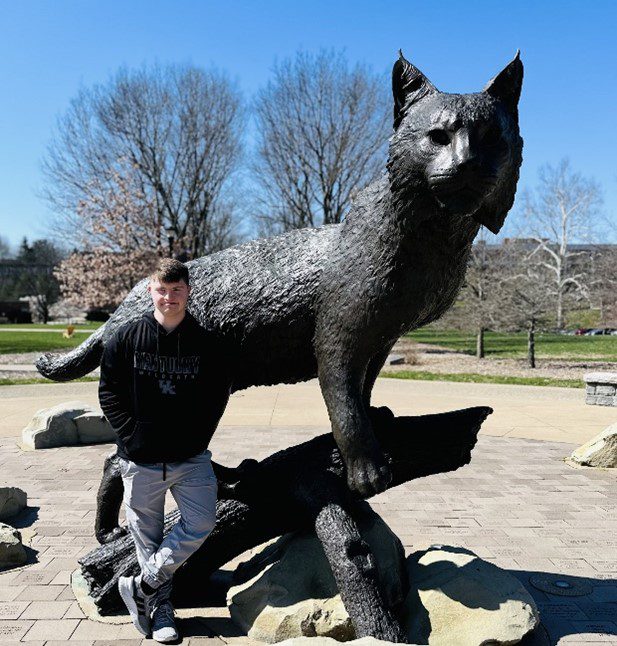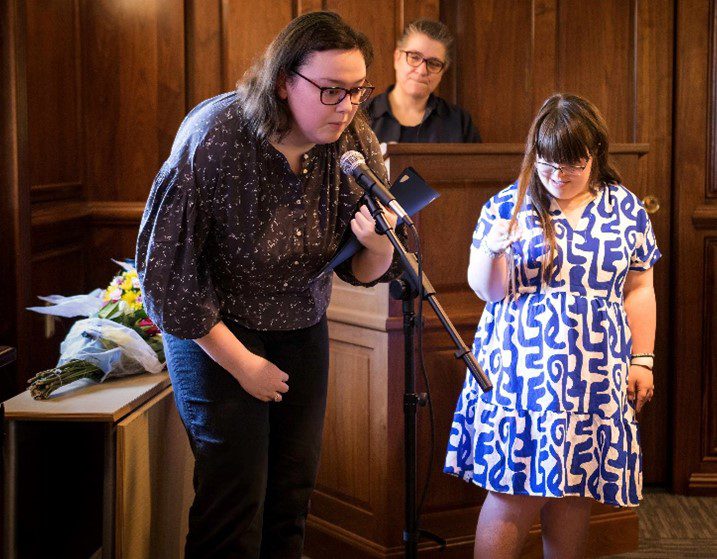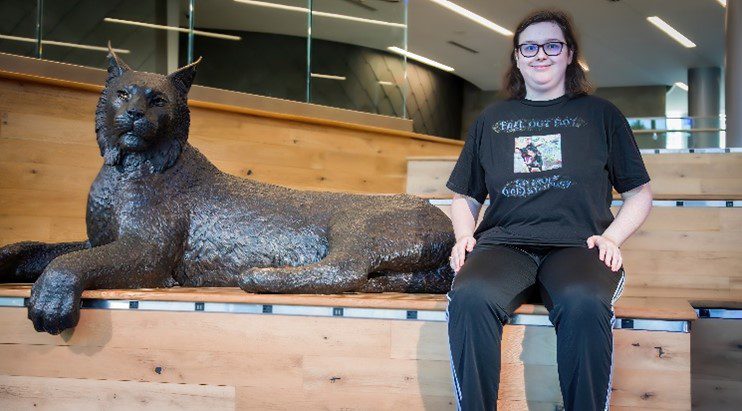CTP Brief: Student Financial Assistance

Kentucky Comprehensive Transition and Postsecondary Programs for Students with Intellectual Disabilities
Program Brief for Students
Comprehensive Transition & Postsecondary Programs (CTPs)
CTPs were created by the Higher Education Opportunity Act (HEOA, 2008). They support students with Intellectual Disabilities (ID) who want to continue academic, career, or technical instruction in higher education to better prepare for competitive integrated employment and independent living. CTPs:
- use person-centered planning to help students identify and explore career goals, which may include paid work and unpaid work-based experiences
- facilitate the social and academic integration of students on a college campus
- provide support to navigate all elements of college life, including admissions, coursework, work experiences, and extracurricular activities
CTP Program Eligibility
Students enrolled in an approved CTP must have a documented ID, as defined by the HEOA. This means a student:
- With a cognitive impairment characterized by significant limitations in:
- intellectual and cognitive functioning; and
- adaptive behavior
- Who is currently, or was formerly, eligible for a free appropriate public education under the Individuals with Disabilities Education Act
Student Financial Assistance
Student Financial Assistance:
Students with ID enrolled in an approved CTP can access federal financial aid for which they qualify and state financial aid from the Kentucky Educational Excellence Scholarship (KEES), Work Ready Kentucky Scholarship, and College Access Program Grant programs, if eligible. Students and families can contact the Kentucky Higher Education Assistance Authority (KHEAA) at (800) 928-8926 or visit kheaa.com for help with the financial aid process.
To learn more about financial assistance for students enrolled in an approved Kentucky CTP, see CTP Brief: Student Financial Assistance.
Frequently Asked Questions
- How do students interested in a CTP apply for federal student financial assistance?
Students interested in enrolling in an approved CTP should complete the FAFSA each year at www.studentaid.gov and indicate which college(s) they want information sent.
- The FAFSA asks about high school completion status. How do students answer this question and will this affect students’ eligibility for financial aid?
Students with any diploma or credential other than a standard high school diploma (e.g., alternative high school diploma, GED, no diploma) select “none of the above”. This answer will not affect eligibility for student aid if a student is enrolled in an approved CTP.
- What does it mean if a FAFSA has been selected for verification?
In some cases, the U.S. Department of Education requires the financial aid office to verify the accuracy of certain information reported on the FAFSA. The school may request additional documentation from the student or parents to complete this review before federal student financial aid can be finalized. Being chosen for verification does not suggest that an error was
made on the FAFSA, and financial aid counselors can support students throughout the process.
- What do students enrolled in a Kentucky CTP need to do to keep their federal student financial aid?
As outlined by college/university satisfactory academic progress (SAP) policies for students in CTPs, students must maintain SAP and meet the basic federal student aid eligibility requirements. Students must re-apply each year for federal aid by filing the FAFSA.
- How do students enrolled in a Kentucky CTP receive their KEES funds?
College financial aid offices work directly with the statewide KEES coordinator at KHEAA to report enrollment and request the KEES CTP awards for eligible students (KRS 164.7882). KEES amounts for students enrolled in an approved CTP are $500 if enrolled in at least six (6) hours in an academic term; or $250 if enrolled in less than six (6) hours in an academic term. Note: KEES funds can only be awarded for fall and spring terms.
- How do students enrolled in a Kentucky CTP continue to qualify for KEES awards?
All that is necessary to qualify for renewal of the KEES CTP award is for a student to maintain enrollment in the CTP and maintain satisfactory academic progress as outlined in the SAP policy. Students are eligible for KEES CTP awards for a maximum of eight (8) academic terms.
- How can CTP students apply for the Work Ready Kentucky Scholarship Program (WRKS)?
Click here to learn more about the WRKS Program, including how to apply.
- Does receiving financial aid/grants to pay for college affect Social Security benefits for CTP students?
Grants, scholarships, fellowships, or gifts received for educational expenses are not counted as income or resources by Social Security if they are used to pay for educational expenses in a timely manner. To learn more about Supplemental Security Income (SSI) when students turn 18, including how grants and scholarships affect SSI benefits, visit: www.ssa.gov/pubs/EN-05-11005.pdf
There are six approved CTPs in Kentucky:

Last updated 9/13/2023. To view the latest version of this document, visit www.kshep.hdiuky.org/resources
For more information, please contact:
Johnny W. Collett
Deputy Director
(859) 257-2304

